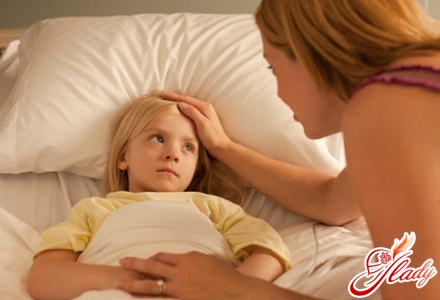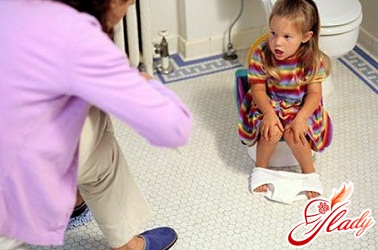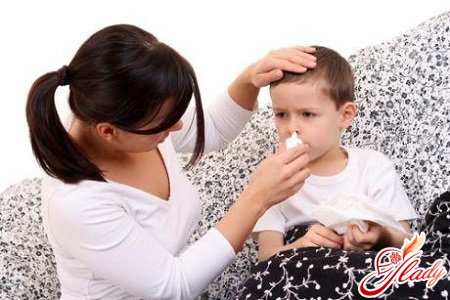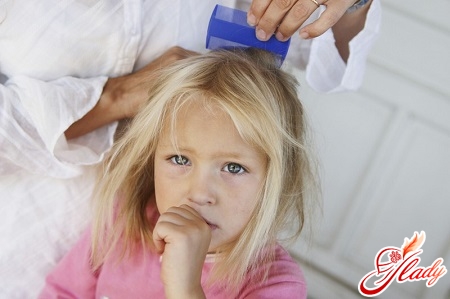 Our children are the most precious thing, that onlyexists in our life. And, of course, all parents are very sensitive to the health of their child. The slightest malaise greatly upsets Mom and Dad. However, colds are sick to all children without exception, and nothing can be done about it. However, unfortunately, acute respiratory diseases are one of the least evils that can trap a baby in his life. There is a huge number of other diseases to which a child is exposed. And kidney disease is one of them. It is about the diseases of the kidneys and urinary tracts that will be discussed below.
Our children are the most precious thing, that onlyexists in our life. And, of course, all parents are very sensitive to the health of their child. The slightest malaise greatly upsets Mom and Dad. However, colds are sick to all children without exception, and nothing can be done about it. However, unfortunately, acute respiratory diseases are one of the least evils that can trap a baby in his life. There is a huge number of other diseases to which a child is exposed. And kidney disease is one of them. It is about the diseases of the kidneys and urinary tracts that will be discussed below.
What are the kidneys?
Kidneys are the most important organ of the urinary systemrights. Kidneys are a kind of filter, through which the human body removes from the body all harmful substances that are simply unnecessary to it. For the functioning of the body it is extremely important to maintain an optimal balance of the internal environment of the body. Only with the correct balance is a correctly occurring process of metabolism and the formation of new blood cells - erythrocytes. The laying and development of the kidneys begins during the intrauterine development of the child. However, by the time the baby is born, the development of its kidneys has not yet been fully completed. The size of the filtering surface of the kidneys in a newborn baby is five times less than the prescribed one. And only by the end of the sixth month of life the size of the surface is approaching the normal. During intrauterine development of the kidney as a full-fledged organ of excretion is not yet functioning. All unnecessary substances from the child's body are excreted by the placenta. However, nevertheless, a small amount of urine accumulates in the kidney of the kidney, so that even before the baby is born, its expansion takes place. There is no need to worry about this, since this is an absolutely normal physiological phenomenon. The expansion of the renal pelvis disappears by about one and a half years.
The principle of the urinary system
Before starting a conversation about kidney disease andurinary tract, it is necessary to mention how they function. The kidney itself consists of a cup and a pelvis, in which, in fact, urine is formed. The urine formed by the ureters falls into the bladder, and from there it is removed from the human body outwards along the urethra (urethra). Filling of the bladder occurs gradually, so the urge to urinate appears in a person only when his bladder is filled more than half. In the same case, if there is a violation of the nervous regulation of this process, all sorts of dysfunctions of the urinary tract occur. Most often, kidney disease and disruption of the normal functioning of the urinary system occur at critical moments in the development of the child. Such periods include:
The highest risk of diseaseurinary tract in those children whose parents suffer from either pyelonephritis or diseases of the endocrine system. To the state of health of such children, mom and dad should be most careful not to miss the first alarm bell. After all, the earlier treatment is started, the more successful it will be.
Types of diseases of the kidneys and urinary tract
To date, modern medicine knows more than 30 different diseases of the kidneys and urinary tract. In this article, we will only talk about the most common ones, such as:
- Urinary incontinence
If the child is unable to retain urine in the urinarya bladder and does not have a urge to urinate, we can talk about such a violation as incontinence. Such a violation brings a lot of problems, both to the child himself and his mother. However, it must be borne in mind that the child is able to control his urination no earlier than he will be one to two years old. Until then, the diagnosis of "urinary incontinence" is not made.
- Urinary Incontinence
Urinary incontinence, though it has a consonant namewith the previous violation, is inherently different from it. The child has a urge to urinate, but can not hold urine and does not have time to reach the toilet.
- Enuresis
Enuresis is called night night incontinence. During the day, the child completely controls his urination, but in the morning he wakes up in a wet bed. And such a violation without proper treatment can persist in the child all his life.
- Pathological enlargement of the kidneys
We have already mentioned that for small childrenchildren are characterized by a physiological expansion of the kidney loops, which itself disappears to a one-year-old image. However, a pathological enlargement of the renal pelvis is also found. There are quite a lot of reasons that can cause it. Such causes may be refluxes, which cause urine to be thrown back from the ureter back into the kidney, and vascular anomalies of the kidneys, leading to a pathological change in the kidney tissue. For all young children, ultrasound examination of the kidneys is necessary during the first month of life. And in the event that the baby has a physiological enlargement of the kidneys, then regular monitoring of the child's health is necessary. Control ultrasound should be performed every three months. Such a tactic will allow timely detection of all violations and take timely measures necessary to prevent the deterioration of the child's condition.
- Urinary tract infections
Urinary tract infections are the mosta common kidney disease in children. As a rule, at least once in a lifetime every third child is sick. According to the frequency of occurrence, this disease is in second place after acute respiratory infections. There are several types of such infections:
Bacteria enter the urinary system byupward path. In the beginning, the bacteria get to the perineum and the genitals, then go up the urethra to the bladder and thence to the kidneys. By the way, girls are much more likely to be exposed to infectious diseases of the urinary system than boys. This is due to the physiological characteristics of the structure of the sexual organs of girls. Their urethra is broader and shorter, which greatly facilitates bacterial penetration. It is because of this and the girl's personal hygiene needs more attention - it is very important to properly wash the little girl: from the front back, so as not to carry the pathogenic bacteria from the anus to the genitalia of the baby. After she grows up, her mother must teach her to do it herself.
- Renal insufficiency
In the event that a child suffers from a kidneyinsufficiency, kidney, depending on the severity of the disease, can partially or completely stop performing their functions. Complete cessation of kidney function results in acute renal failure - a condition that endangers the child's life and requires immediate medical attention. With kidney failure in the child's body there is a violation of electrolyte balance, and a significant amount of uric acid accumulates in the blood. Doctors distinguish two forms of renal failure: chronic and acute. The chronic form of renal insufficiency, as a rule, is a direct consequence of some chronic diseases, for example, pyelonephritis, diabetes mellitus or congenital anomaly of the kidneys and urinary tract. Acute renal failure almost always occurs as a result of exposure to the kidney or poisonous substances, or large doses of medications.
- Nephroptosis
Doctors call this a violation of nephroptosisthe structure of the kidney, in which it is not fixed in a certain position, but mobile. In the people this disease also has such names as a moving kidney, a wandering kidney or a kidney lowering. In the event that the mobile kidney falls, there is a huge risk that it will turn around its axis. Because of this torsion, the vessels are stretched and bent. This phenomenon is extremely dangerous, as there is a violation of the circulation of the kidney. Features of female physiology make a girl more susceptible to this disease than boys.
- Increased salt content in the urine
In the event that the child has a normalmetabolism, very often in the urine the amount of salt crystals in the urine increases. Most often there are phosphates, urates and oxalates. In addition to metabolic disorders, a factor that provokes a high content of salts in the urine, it can become wrong to balance the baby's nutrition, in which the kidneys do not have time to dissolve the salt. The content of oxalate in the urine is increased in the case when in the diet in a large amount there are such foods rich in vitamin C and oxalic acid. Such products include spinach, beets, celery, parsley, sour apples, currants, radishes, cocoa, chocolate, cottage cheese, broths, etc.). Increased urate in urine is caused by a baby's diet, saturated with purine bases. Such products include offal, liver, broth, pork, fatty fish, sardines, tomatoes, strong tea, acidic mineral waters. The content of phosphates in urine is increased if the child's diet is rich in phosphorus-rich foods, for example cheese, fish, caviar, pearl barley, buckwheat, oatmeal and millet, peas, beans, alkaline mineral water. As a rule, in such cases, changes in urine in children are temporary. With a timely adjustment of the diet of the child, the urine composition is very quickly normalized. However, in no case is it inadmissible to ignore this problem, considering it to be something frivolous. In the event that parents urgently do not review the diet of their child, there is a great risk of sand and even stones, both in the kidneys and in the bladder. And urolithiasis is a serious enough and extremely unpleasant disease requiring long and complex treatment. 
Symptoms of kidney and urinary tract disease in children
As a rule, it is not difficult to notice kidney disease in a child for attentive parents. All diseases have a certain number of symptoms:
- Painful sensations in the lumbar region. And the pain can be both acute and pulling.
- Change in the color of urine, its turbidity and the appearance of blood.
- Increased body temperature for no apparent reason.
- The appearance of edema of the face, especially in the morning, after the awakening of the child.
- The appearance of so-called "bags" under the eyes.
- Feeling of weakness, fast fatigue of the child.
- Sensation of dry mouth, constant thirst.
However, sometimes some kidney diseaseproceed in a latent form, without standard symptoms. That's why parents should pay attention to absolutely any changes in the child's well-being. Symptoms of urinary system diseases in children under one year of age: A small child can not complain to parents about unpleasant and painful sensations in the lumbar region and discomfort when urinating. Therefore, parents must be especially careful. Signs of kidney disease in children under one year:
Symptoms of kidney disease in children older thanof one-year-old age: Parents of older children, after about one year, should also be concerned if the child has the following symptoms:
In no event should we ignoreany kidney disease in children, because the health consequences of the child can be the most unpredictable. So, for example, congenital kidney pathologies or chronically occurring diseases of the urinary tract can lead to a significant lag in the child's physical development. In addition, the chronic forms of various diseases can lead to such a formidable phenomenon as acute renal failure. This disease can endanger not only health, but also the life of a crumb.
Treatment of urinary tract diseases
Finding from your child any of theof the above symptoms, parents should as soon as possible seek help from a pediatrician - a urologist or, in his absence, a pediatrician. In no case is it inadmissible to start treatment independently, at the promptings of grandmothers or girlfriends. In some cases, this self-medication can bring improvement, but only temporary, since the disease will not be completely eliminated, but only deeper. And in some cases, self-medication can lead to very serious complications and even endanger the child's life. Before appointing any treatment, the doctor will prescribe a series of studies that are necessary to compile a complete picture of the disease and to establish the correct diagnosis. As a rule, the following studies are carried out for the child:
- General urine analysis
It allows to detect the presence in the urine of sediment salts,blood particles, erythrocytes. Having the results of a laboratory urine test, the doctor will get an idea about that. What happens in the urinary system of a sick child. In order to ensure that the results of urine are correct, and not distorted, urine must be collected correctly. Wash the baby thoroughly and collect the urine in an ideally clean container. If we are talking about a teenage girl, do not take the urine test during menstruation.
- General blood analysis
A general blood test will determine whether there are any inflammatory processes and signs of general intoxication in the body of the child.
- Ultrasound examination of the kidneys
Ultrasound can identifycongenital anomalies in the structure of the organs of the urinary system, their pathological changes, or the presence of sand and stones. Based on the complaints of parents and the child and the results of the research, the doctor will diagnose and prescribe the appropriate treatment scheme for your child. To successfully get rid of the disease, parents must strictly follow all the doctor's instructions and fulfill all of his appointments. Be healthy! We advise you to read:









